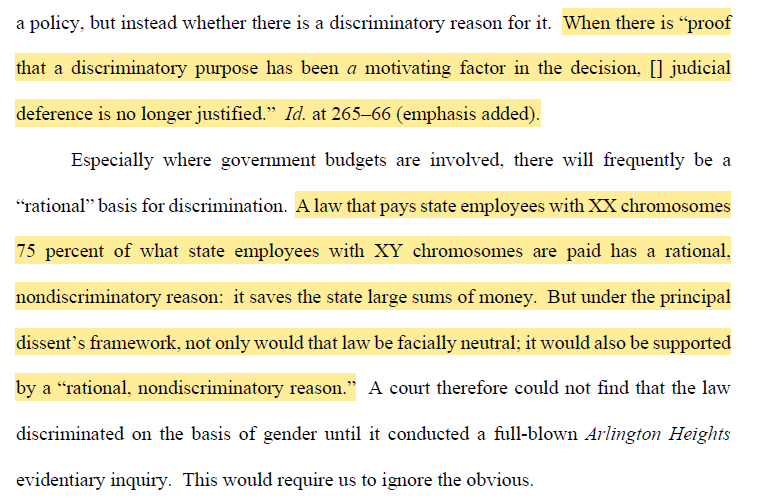National
GOP att’y strongly defends DOMA in N.Y. widow’s lawsuit
Second Circuit hears arguments in Windsor case in NYC

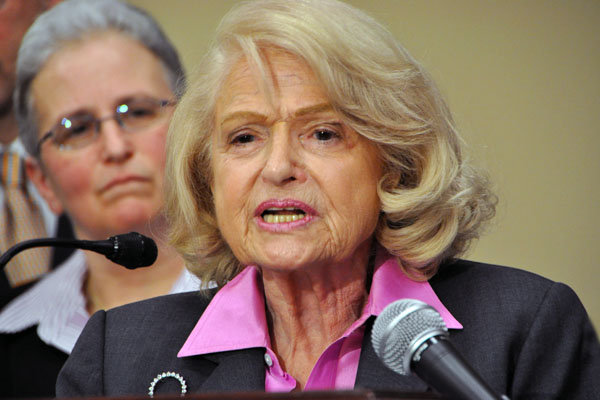
Edith ‘Edie’ Windsor testifies in her Federal Court case against DOMA. (Washington Blade file photo by Michael Key)
NEW YORK CITY — The House Republican attorney defending the Defense of Marriage Act in court took particular issue on Thursday with an octogenarian lesbian’s case against by the law by suggesting the timing and location of her marriage makes challenge invalid.
Paul Clement, a former U.S. solicitor general under the Bush administration, claimed before a federal appeals court that Edith Windsor doesn’t have a case because she married in Canada and her spouse, Thea Spyer, died in 2009 — two years before New York legalized same-sex marriage.
“The critical question isn’t 2012, the critical question is 2009,” Clement said.
Clement added that the issue of whether the marriage is sufficient for a challenge against DOMA should be brought to certification before the New York Court of Appeals, the highest state court in New York.
James Esseks, director of the ACLU’s Lesbian Gay Bisexual and Transgender Project, told the Blade after the oral arguments that Clement was “grasping at straws” when making these claims.
“There’s clear law in New York that New York in 2004 recognized the marriages of same-sex marriage performed in Canada and in other states that allowed same-sex couples to marry,” Esseks said.
Esseks acknowledged that the high court in New York hasn’t affirmed those marriages, but said that three lower courts have recognized those marriages as legitimate as well as the governor and attorney general.
“There’s just no debate about it; It’s quite clear,” Esseks said. “I think we heard from the court today — it’s difficult to make any predictions — but based on what I heard from the court, I don’t think that that’s how the court’s going to decide this question. They’re not going to duck the constitutionality of the Defense of Marriage by saying we’re not sure whether she’s actually married or not.”
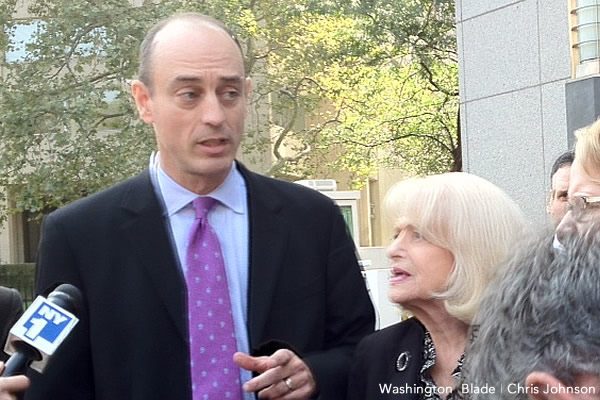
Edith Windsor (right) speaks with the ACLU’s James Esseks to reporters following oral arguments in the Second Circuit (Washington Blade photo by Chris Johnson)
A three-judge panel on the appellate court heard from three attorneys during oral arguments in the case, known as Windsor v. United States. The lawsuit was filed by the American Civil Liberties Union on behalf of Windsor, who was forced to pay $363,000 in estate taxes upon the death of her spouse because of Section 3 of DOMA, which prohibits federal recognition of same-sex marriage.
The panel consisted of Chief Judge Dennis Jacobs, who was appointed by President George H.W. Bush; Judge Chester Straub, who was appointed by former President Bill Clinton; and Judge Christopher Droney, who was appointed by President Obama.
It’s the second time a federal appellate court has considered the constitutionality of DOMA. In April, the U.S. First Circuit of Appeals heard oral arguments in the consolidated case of Gill v. Office of Personnel Management and Commonwealth of Massachusetts v. Department of Health & Human Services. On May 31, the appeals issued a decision against DOMA as result of that consideration.
Lawyers presented before the Second Circuit starkly different views on the the Defense of Marriage Act on Thursday before judges reviewing Windsor’s challenge to the anti-gay law, which was passed by Congress in 1996.
In addition to questioning whether Windsor has standing, Clement, who’s DOMA in court on behalf of the House Republican-led Bipartisan Legal Advisory Group, drew upon the cases of Baker v. Nelson, a 1972 Minnesota case seeking the legalization of same-sex marriage that the U.S. Supreme Court declined to hear for lack of substantive federal question.
Clement acknowledged the case is 40 years old and times may have changed since then, but added, “The only thing that hasn’t changed is this court’s obligation to follow Supreme Court precedent.”
Plaintiffs in the case had another view. Roberta Kaplan, partner at Paul, Weiss, Rifkind, Wharton & Garrison LLP, argued against DOMA on behalf of Windsor, saying the law be struck down because states can already decide on their own what decisions to make about who can marry within their borders.
“The problem supposedly solved by uniformity is a problem that our federalist principles have already dealt with,” Kaplan said.
Kaplan added the case against DOMA isn’t about any federal right to marry because even with the law in place, gay couples haven’t been discouraged from marrying across the country, nor have they been discouraged from adopting.
Acting U.S. Assistant Attorney General Stuart Delery, who’s gay, assisted in the litigation against by presenting arguments on behalf of the Obama administration, saying the court should strike down because of the long history of discrimination against LGBT people — including the criminalization of homosexuality and being barred from military service.
“Sexual orientation is a fundamental part of person’s identity that says nothing about a person’s ability to contribute to society,” Delery said.
Questions from judges hit on several topics, although the questioning from didn’t reveal much in terms of what how they’d rule in the case. Many inquiries were posed about the extent to which gays and lesbians enjoy political power within the U.S. government. Opponents of DOMA have argued the anti-gay law is unconstitutional because gays and lesbians lack political power, but BLAG contends the LGBT community has significant influence.
Asked by Jacobs about whether the test of political power is whether gays and lesbians have any power at all or whether power is diminished, Clement replied, “I think it’s the former, and I don’t think it’s not a overwhelmingly difficult test. … It’s a matter of whether you get the attention of lawmakers.”
Clement pointed to a friend-of-the-court brief signed by 145 House Democrats filed in the case on behalf of plaintiffs as evidence that the LGBT community has influence over the political process as he asserted the LGBT community should look to the legislative process to repeal DOMA, saying “This is an issue that could be left to the Democratic process.”
But Kaplan said the 30 marriage amendments that passed in state throughout the country are evidence that gay and lesbians are politically powerless, even though she emphasized these amendments have no bearing on the case at hand against DOMA.
The degree of scrutiny under which laws related to sexual orientation should face before the courts also came up the during the hearing. Judges asked whether they should overturn DOMA on the basis that such laws should be subjected to strict scrutiny, or more intermediate level of heightened scrutiny or be examined under a rational basis review. The level of scrutiny they apply could have implications on court cases related to sexual orientation.
In the event the court decided to rule against DOMA, Clement said the court asked the court not to apply heightened scrutiny, noting it would be the first appellate court to do so because the First Circuit Court of Appeals when struck down DOMA in May under rational basis review.
Kaplan said she was arguing for the higher level of review called strict scrutiny as opposed to the more intermediate heightened scrutiny because “being gay or lesbian is closer to being African-American than being a woman.” Laws related to gender have been subjected to heightened scrutiny, but laws related to race have been subjected to strict scrutiny.
But Delery didn’t articulate the same view, saying he was arguing against DOMA on the basis that it violated heightened scrutiny. While he acknowledged arguments could be made that DOMA fails rational basis, he wouldn’t commit to saying that should be struck down under that standard.
Another question for Delery, which came from Droney, was why the Justice Department had appealed the Windsor to the Second Circuit even though his side won at the district court level when U.S. District Judge Barbara Jones ruled against the law. Delery provided a explanation, prompting Droney to quip that the Justice Department must have a predilection for seeking appellate court rulings in all cases, eliciting laughter from those in attendance at the hearing.
Yet another question was raised by Jacobs on whether withholding benefits from gay couples with the intention of saving money for the federal government is a good enough constitutional reason to keep DOMA in place. Kaplan denied this assertion and said saving money isn’t sufficient rationale unless it’s coupled with another justification.
But Clement pounced on these remarks in the rebuttal allotted to him at the end of the oral arguments, saying preserving federal coffers are absolutely a good reason to preserve DOMA and Congress was “preserving the scope of the benefits programs the way they’ve always been.”
Clement also during his rebuttal asserted that Congress has acted in other areas besides gay and lesbian with regard to marriage. He noted lawmakers have acted to protect against fraud, and, going back to the 19th Century, require states to prohibit polygamy so territories like Utah could enter into the union.
Following the oral arguments, Windsor appeared outside the court building to speak with reporters. Windsor, who recently turned 83, said, “I look forward to the day when the federal government will recognize the marriages of all Americans, and I am hopeful that this day will come during my lifetime.”
Windsor further invoked the memory her deceased spouse — with whom she shared a life for 40 years — saying she believes she’s was present in the court in spirit and “would have been so proud to see how far we’ve come.”
Now that oral arguments are done, judges will confer to determine the steps they’ll take in the case and the process that will lead to them making a decision. There’s no set time for when they have to make a ruling; it could be a matter of days, months or a year.
The ACLU’s Esseks said he wasn’t in a position to predict in what way judges would rule as a result of what was said during the oral arguments.
“Lawyers never want to predict the outcomes,” Esseks said. “There are some arguments that you come out of and you’re like I’m willing to take a guess here. This argument didn’t give me clear sense one way or the other. I wouldn’t be surprised about a win and I wouldn’t be shocked about a loss either.”
Windsor’s attorneys and the Justice Department have asked the Supreme Court to take up the Windsor case for consideration. If the Supreme Court accepts the request, the high court would take up jurisdiction of the lawsuit and the Second Circuit proceedings would be halted.
National
United Methodist Church removes 40-year ban on gay clergy
Delegates also voted for other LGBTQ-inclusive measures
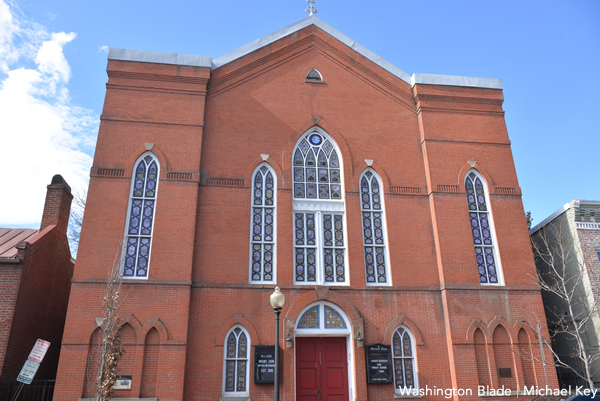
The United Methodist Church on Wednesday removed a ban on gay clergy that was in place for more than 40 years, voting to also allow LGBTQ weddings and end prohibitions on the use of United Methodist funds to “promote acceptance of homosexuality.”
Overturning the policy forbidding the church from ordaining “self-avowed practicing homosexuals” effectively formalized a practice that had caused an estimated quarter of U.S. congregations to leave the church.
The New York Times notes additional votes “affirming L.G.B.T.Q. inclusion in the church are expected before the meeting adjourns on Friday.” Wednesday’s measures were passed overwhelmingly and without debate. Delegates met in Charlotte, N.C.
According to the church’s General Council on Finance and Administration, there were 5,424,175 members in the U.S. in 2022 with an estimated global membership approaching 10 million.
The Times notes that other matters of business last week included a “regionalization” plan, which gave autonomy to different regions such that they can establish their own rules on matters including issues of sexuality — about which international factions are likelier to have more conservative views.
Federal Government
Republican state AGs challenge Biden administration’s revised Title IX policies
New rules protect LGBTQ students from discrimination

Four Republicans state attorneys general have sued the Biden-Harris administration over the U.S. Department of Education’s new Title IX policies that were finalized April 19 and carry anti-discrimination protections for LGBTQ students in public schools.
The lawsuit filed on Tuesday, which is led by the attorneys general of Kentucky and Tennessee, follows a pair of legal challenges from nine Republican states on Monday — all contesting the administration’s interpretation that sex-based discrimination under the statute also covers that which is based on the victim’s sexual orientation or gender identity.
The administration also rolled back Trump-era rules governing how schools must respond to allegations of sexual harassment and sexual assault, which were widely perceived as biased in favor of the interests of those who are accused.
“The U.S. Department of Education has no authority to let boys into girls’ locker rooms,” Tennessee Attorney General Jonathan Skrmetti said in a statement. “In the decades since its adoption, Title IX has been universally understood to protect the privacy and safety of women in private spaces like locker rooms and bathrooms.”
“Florida is suing the Biden administration over its unlawful Title IX changes,” Florida Gov. Ron DeSantis wrote on social media. “Biden is abusing his constitutional authority to push an ideological agenda that harms women and girls and conflicts with the truth.”
After announcing the finalization of the department’s new rules, Education Secretary Miguel Cardona told reporters, “These regulations make it crystal clear that everyone can access schools that are safe, welcoming and that respect their rights.”
The new rule does not provide guidance on whether schools must allow transgender students to play on sports teams corresponding with their gender identity to comply with Title IX, a question that is addressed in a separate rule proposed by the agency in April.
LGBTQ and civil rights advocacy groups praised the changes. Lambda Legal issued a statement arguing the new rule “protects LGBTQ+ students from discrimination and other abuse,” adding that it “appropriately underscores that Title IX’s civil rights protections clearly cover LGBTQ+ students, as well as survivors and pregnant and parenting students across race and gender identity.”
Federal Government
4th Circuit rules gender identity is a protected characteristic
Ruling a response to N.C., W.Va. legal challenges
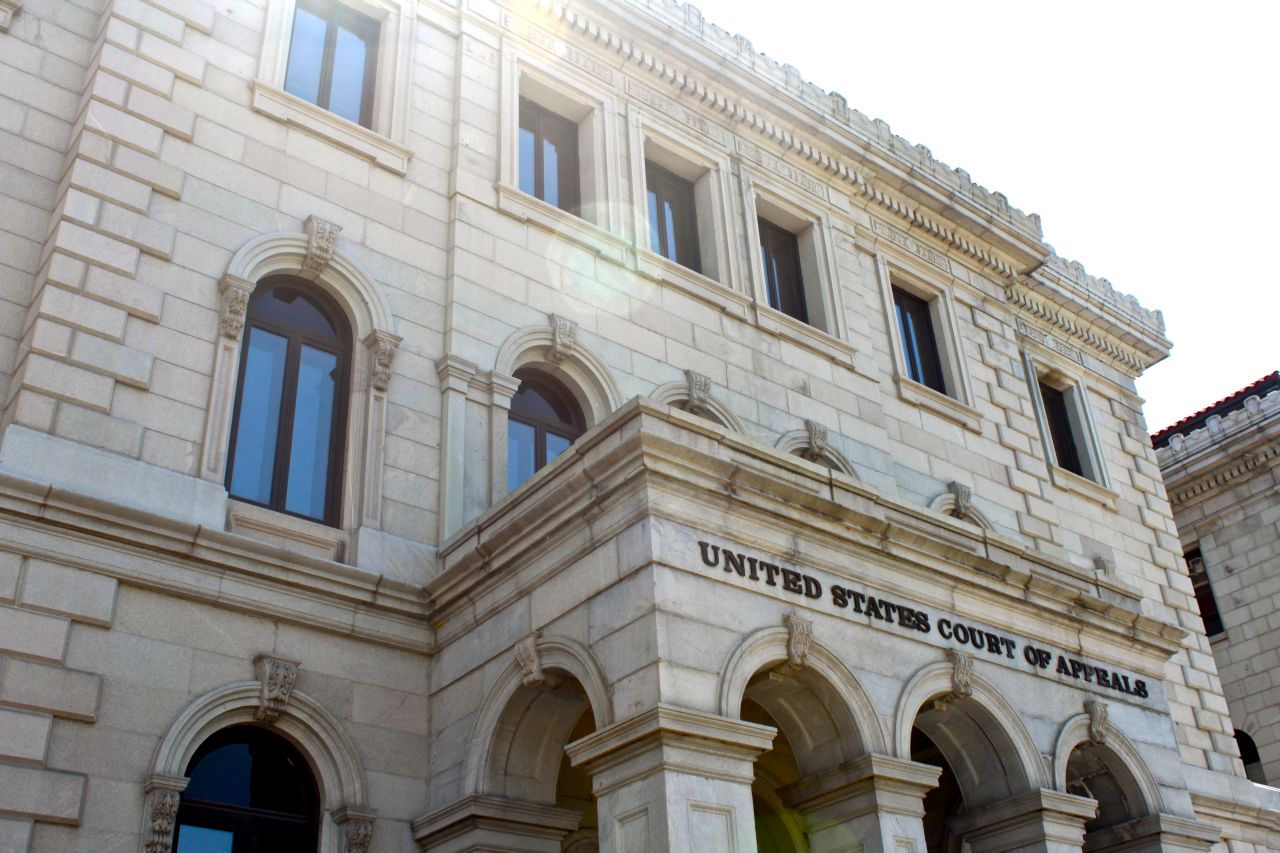
BY ERIN REED | The 4th U.S. Circuit Court of Appeals ruled Monday that transgender people are a protected class and that Medicaid bans on trans care are unconstitutional.
Furthermore, the court ruled that discriminating based on a diagnosis of gender dysphoria is discrimination based on gender identity and sex. The ruling is in response to lower court challenges against state laws and policies in North Carolina and West Virginia that prevent trans people on state plans or Medicaid from obtaining coverage for gender-affirming care; those lower courts found such exclusions unconstitutional.
In issuing the final ruling, the 4th Circuit declared that trans exclusions were “obviously discriminatory” and were “in violation of the equal protection clause” of the Constitution, upholding lower court rulings that barred the discriminatory exclusions.
The 4th Circuit ruling focused on two cases in states within its jurisdiction: North Carolina and West Virginia. In North Carolina, trans state employees who rely on the State Health Plan were unable to use it to obtain gender-affirming care for gender dysphoria diagnoses.
In West Virginia, a similar exclusion applied to those on the state’s Medicaid plan for surgeries related to a diagnosis of gender dysphoria. Both exclusions were overturned by lower courts, and both states appealed to the 4th Circuit.
Attorneys for the states had argued that the policies were not discriminatory because the exclusions for gender affirming care “apply to everyone, not just transgender people.” The majority of the court, however, struck down such a claim, pointing to several other cases where such arguments break down, such as same-sex marriage bans “applying to straight, gay, lesbian, and bisexual people equally,” even though straight people would be entirely unaffected by such bans.
Other cases cited included literacy tests, a tax on wearing kippot for Jewish people, and interracial marriage in Loving v. Virginia.
See this portion of the court analysis here:
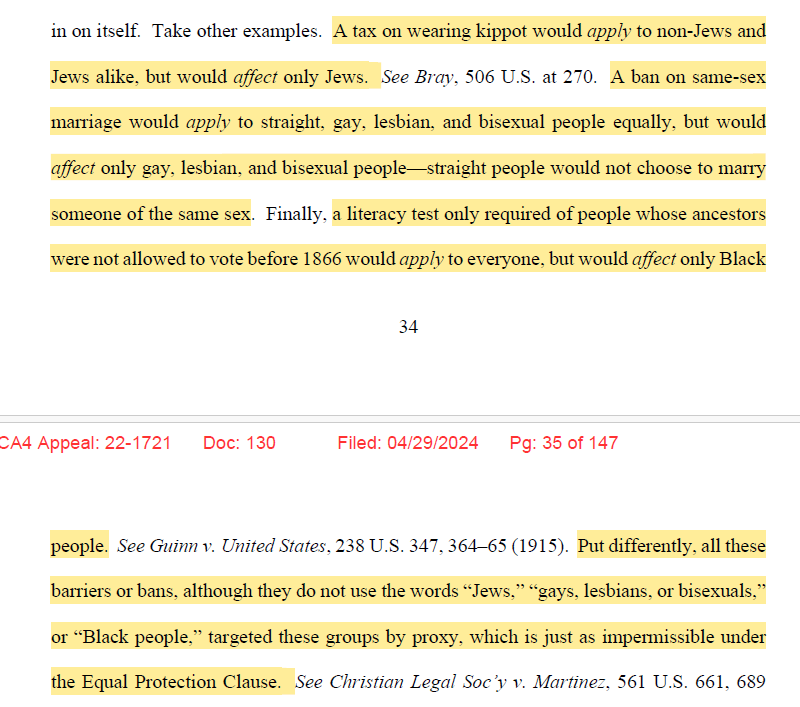
Of particular note in the majority opinion was a section on Geduldig v. Aiello that seemed laser-targeted toward an eventual U.S. Supreme Court decision on discriminatory policies targeting trans people. Geduldig v. Aiello, a 1974 ruling, determined that pregnancy discrimination is not inherently sex discrimination because it does not “classify on sex,” but rather, on pregnancy status.
Using similar arguments, the states claimed that gender affirming care exclusions did not classify or discriminate based on trans status or sex, but rather, on a diagnosis of gender dysphoria and treatments to alleviate that dysphoria.
The majority was unconvinced, ruling, “gender dysphoria is so intimately related to transgender status as to be virtually indistinguishable from it. The excluded treatments aim at addressing incongruity between sex assigned at birth and gender identity, the very heart of transgender status.” In doing so, the majority cited several cases, many from after Geduldig was decided.
Notably, Geduldig was cited in both the 6th and 11th Circuit decisions upholding gender affirming care bans in a handful of states.
The court also pointed to the potentially ridiculous conclusions that strict readings of what counts as proxy discrimination could lead to, such as if legislators attempted to use “XX chromosomes” and “XY chromosomes” to get around sex discrimination policies:
Importantly, the court also rebutted recent arguments that Bostock applies only to “limited Title VII claims involving employers who fired” LGBTQ employees, and not to Title IX, which the Affordable Care Act’s anti-discrimination mandate references. The majority stated that this is not the case, and that there is “nothing in Bostock to suggest the holding was that narrow.”
Ultimately, the court ruled that the exclusions on trans care violate the Equal Protection Clause of the Constitution. The court also ruled that the West Virginia Medicaid Program violates the Medicaid Act and the anti-discrimination provisions of the Affordable Care Act.
Additionally, the court upheld the dismissal of anti-trans expert testimony for lacking relevant expertise. West Virginia and North Carolina must end trans care exclusions in line with earlier district court decisions.
The decision will likely have nationwide impacts on court cases in other districts. The case had become a major battleground for trans rights, with dozens of states filing amicus briefs in favor or against the protection of the equal process rights of trans people. Twenty-one Republican states filed an amicus brief in favor of denying trans people anti-discrimination protections in healthcare, and 17 Democratic states joined an amicus brief in support of the healthcare rights of trans individuals.
Many Republican states are defending anti-trans laws that discriminate against trans people by banning or limiting gender-affirming care. These laws could come under threat if the legal rationale used in this decision is adopted by other circuits. In the 4th Circuit’s jurisdiction, West Virginia and North Carolina already have gender-affirming care bans for trans youth in place, and South Carolina may consider a similar bill this week.
The decision could potentially be used as precedent to challenge all of those laws in the near future and to deter South Carolina’s bill from passing into law.
The decision is the latest in a web of legal battles concerning trans people. Earlier this month, the 4th Circuit also reversed a sports ban in West Virginia, ruling that Title IX protects trans student athletes. However, the Supreme Court recently narrowed a victory for trans healthcare from the 9th U.S. Circuit Court of Appeals and allowed Idaho to continue enforcing its ban on gender-affirming care for everyone except the two plaintiffs in the case.
Importantly, that decision was not about the constitutionality of gender-affirming care, but the limits of temporary injunctions in the early stages of a constitutional challenge to discriminatory state laws. It is likely that the Supreme Court will ultimately hear cases on this topic in the near future.
Celebrating the victory, Lambda Legal Counsel and Health Care Strategist Omar Gonzalez-Pagan said in a posted statement, “The court’s decision sends a clear message that gender-affirming care is critical medical care for transgender people and that denying it is harmful and unlawful … We hope this decision makes it clear to policy makers across the country that health care decisions belong to patients, their families, and their doctors, not to politicians.”
****************************************************************************

Erin Reed is a transgender woman (she/her pronouns) and researcher who tracks anti-LGBTQ+ legislation around the world and helps people become better advocates for their queer family, friends, colleagues, and community. Reed also is a social media consultant and public speaker.
******************************************************************************************
The preceding article was first published at Erin In The Morning and is republished with permission.







